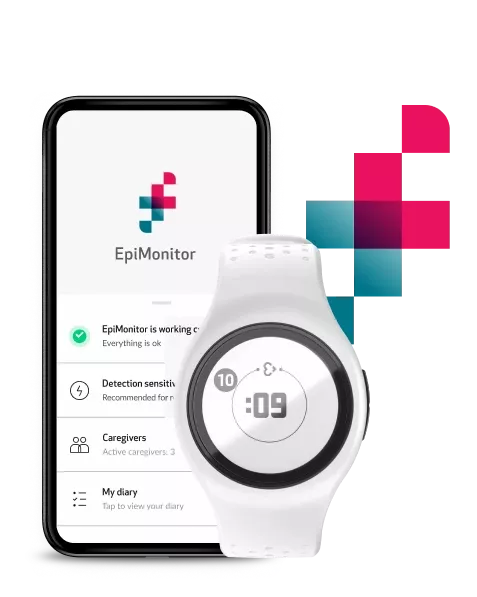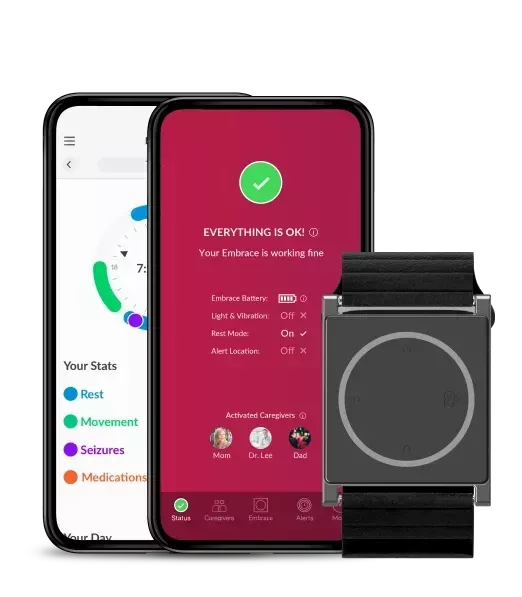How can I remember to take my epilepsy medications on time?
Say you are the mother of an adorable kid who was diagnosed with epilepsy. Your world, from that moment, gets turned upside down. Along with other parenting activities that you have to do like pick-ups and drop-offs from school, helping with homework, and preparing meals, you are also coming to terms with the diagnosis. No doubt, you’d be desperately searching for solutions, going for hospital visits, and ensuring that your child takes their medication to help with seizures. All the while, you are anxiously hoping that your baby will be fine. And you worry, probably all of the time.
Or, you’re a young person with a full-time job and was recently diagnosed with epilepsy. Along with keeping up with the drastic changes in your life and adulting in general, you’re scared about having a seizure when you’re alone, have to remember to take your medications on time, and are frustrated that you might miss your doses sometimes.
Sound familiar?
Living with epilepsy or having a loved one with the condition can be hard. It is complicated to remember everything about taking or administering epilepsy medications, and you might sometimes forget. But taking these medications on time as prescribed by the doctor is important, and we hope that this article helps you understand why.
How your antiepileptic medications work
There are many treatments for epilepsy including surgery, VNS (Vagus Nerve Stimulation) implants, among others, but epilepsy medications, commonly called Antiepileptic Drugs (AEDs) are the most common forms of treatment for people diagnosed with epilepsy. While they do not “cure” epilepsy, they help to reduce the number of seizures that a person has, and, in essence, “control” the condition.
According to the Epilepsy Foundation, AEDs work in the following ways:
- Some medicines work on the brain cells, by acting on the way brain chemicals move in and out of the cells.
- Some other medicines alter the way neurotransmitters (chemical messengers in the nervous system that influence mood, muscle movement, and others) stimulate or excite a person or slow down the way information is sent from one area of the brain cells to another area.
By changing the way the brain cells work and/or react, seizure medicines can help in reducing or stopping seizures, although they might not be able to stop the main cause of the seizures.
Why is it important to take them?
Medications are prescribed based on a person’s seizure pattern and seizure history. While some people may still have seizures on medication, if the doctor has deemed the prescribed medication fit for you, it is important to remember to take them.
- Seizure Control: According to the Epilepsy Foundation, 7 out of 10 people will be able to effectively control their seizures through medications, so it is important to try to take medications as prescribed. If you’re not yet seizure-free, missed doses of epilepsy medications could lead to more seizures. In one research review, 45% of people stated that they had seizures after missing a dose of their seizure medication.
- Missed doses of medications could cause a breakthrough seizure: Medications might be missed for several reasons, and it may be particularly tempting to skip doses if you’re seizure-free. You should only stop taking medications after you have spoken with your doctor, and your doctor agrees with you. Usually, you’ll be weaned off medications gradually, until your doctor deems it fit for you to stop taking them.
Taking medications on time
While it is important to take epilepsy medications, it is equally important to take them on schedule, as prescribed by your doctor. Taking doses late or missing them altogether might negatively impact their effectiveness because the brain needs to have a constant level of seizure medication to prevent seizures from happening. If the amount of seizure medication in the brain is too low due to taking a medication late, then you’ll be at a greater risk of having seizures.
If you, however, miss a dose of your seizure medication, don’t panic. You should not take a double dose next time it is due. You can take the forgotten dose as soon as you remember, for daily medications, or within 6 hours after the first dose was due, for medications to be taken twice a day. These are general instructions for dealing with forgotten doses. However, you should always check directly with your doctor or pharmacist on how you should deal with forgotten doses.

How to avoid missing seizure medications
- Set reminders: Reminders can be very effective. For some people, having a watch with an alarm that beeps when it is time to take their medication works for them. For others, setting a phone alarm works better. Whichever one you choose, having an automatic reminder can go a long way in helping you to not miss a dose.
- Use a pill reminder box: Pill reminder boxes are boxes with at least 7 compartments for each day of the week. You can arrange the pills you need to take daily at the start of the week. When a compartment is empty at the end of the day, you’ll know that you have been compliant with your medications.
- Use a pill calendar: This is a way of keeping track of your meds through the traditional pen and paper method. You can have a table with a list of your meds and a checkbox for morning, afternoon, and evening. Check off the days and times each time you take your medications. If you’re more traditional, you’ll look forward to checking them off just for the pleasure of it!
- Set cues to remind you: Setting cues is also a good way of remembering to take your medications. If you should take your medications after breakfast, for example, you can place a sticky note on the fridge door to remind you. That way, you’ll be sure to see it when getting things out for breakfast. You can also place sticky notes on doorknobs, bathroom cabinets, and other places that you’ll be sure to see them.
- Get into a routine: Establishing a routine can help you get into the habit of taking your medications when due. For example, taking your medication as part of your bedtime routine is a good way of remembering your medications before you sleep.
- Ask your loved ones to help: Your parents or partner will no doubt constantly worry about you and if you’ll be okay. You can also ask them to help you remember to take your meds. Reminding you when your meds are due to be taken might reassure them that you are taking them, and, maybe, help them worry less.
Taking antiepileptic medications is important, and it is also important to take them when due. Medications can be missed due to reasons such as forgetfulness, side effects, affordability, dose complexity, among others. If you have any trouble taking your medications, be honest and open up to your doctor, nurse, or pharmacist to discuss these reasons with them, and they might be able to help you with a workaround.
Words worth reading






